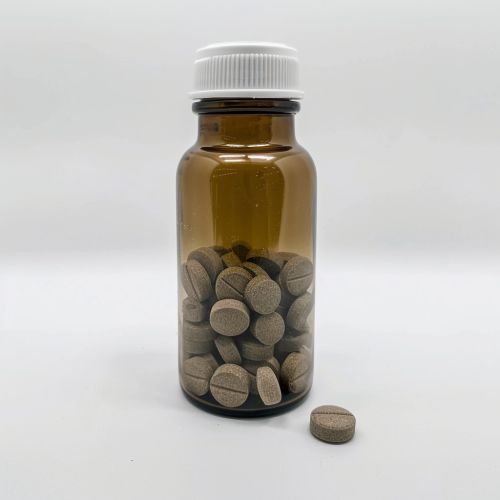Acamprosate
Introduction
Acamprosate, also known by its brand name Campral, is a medication used in the management of alcohol dependence. It is a synthetic compound that is chemically related to the amino acid taurine. Acamprosate is primarily used to help maintain abstinence in individuals who have successfully undergone detoxification from alcohol. It works by modulating the activity of neurotransmitters in the brain, specifically targeting the glutamatergic system to restore the balance disrupted by chronic alcohol consumption.
Mechanism of Action
Acamprosate's primary mechanism of action involves the modulation of glutamate and gamma-aminobutyric acid (GABA) neurotransmission. Chronic alcohol consumption leads to an imbalance between excitatory and inhibitory neurotransmitters, with an upregulation of the glutamatergic system and a downregulation of the GABAergic system. Acamprosate is believed to restore this balance by inhibiting the hyperactive glutamatergic system and enhancing GABAergic neurotransmission.
The drug acts as a functional NMDA receptor antagonist and a positive allosteric modulator of GABA_A receptors. By inhibiting the NMDA receptors, acamprosate reduces the excitatory neurotransmission that is typically heightened during alcohol withdrawal. Concurrently, by modulating GABA_A receptors, it enhances inhibitory neurotransmission, which helps to stabilize neuronal activity and reduce withdrawal symptoms.
Pharmacokinetics
Acamprosate is administered orally in the form of calcium acetylhomotaurinate. After ingestion, it is absorbed in the small intestine, although its bioavailability is relatively low, typically around 11%. The drug is not metabolized by the liver, which makes it a suitable option for patients with hepatic impairment. Instead, it is excreted unchanged by the kidneys. The elimination half-life of acamprosate is approximately 20-33 hours, allowing for a dosing schedule of three times daily.
Clinical Use
Acamprosate is indicated for the maintenance of abstinence in patients with alcohol dependence who have already achieved initial abstinence. It is typically used as part of a comprehensive treatment program that includes psychosocial support and counseling. The standard dosage is 666 mg taken three times daily, although adjustments may be necessary for patients with renal impairment.
Efficacy
Clinical trials have demonstrated that acamprosate is effective in reducing the risk of relapse in alcohol-dependent individuals. Studies have shown that patients treated with acamprosate are more likely to maintain abstinence compared to those receiving a placebo. The drug's efficacy is particularly pronounced when combined with psychosocial interventions, highlighting the importance of a multifaceted approach to treatment.
Side Effects
Acamprosate is generally well-tolerated, with the most common side effects being gastrointestinal in nature. These include diarrhea, nausea, and abdominal pain. Other potential side effects include headache, dizziness, and fatigue. Serious adverse effects are rare but may include allergic reactions and changes in mood or behavior.
Contraindications and Precautions
Acamprosate is contraindicated in patients with severe renal impairment, as the drug is excreted unchanged by the kidneys. It is also not recommended for use in individuals with a known hypersensitivity to the drug or any of its components. Caution is advised when prescribing acamprosate to patients with moderate renal impairment, and dosage adjustments may be necessary.
Interactions
Acamprosate has a relatively low potential for drug-drug interactions. It does not undergo hepatic metabolism and does not significantly affect the activity of cytochrome P450 enzymes. However, it is important to consider the patient's overall medication regimen and monitor for any potential interactions, particularly with other central nervous system (CNS) depressants.
Research and Development
Ongoing research is exploring the potential of acamprosate in other areas of addiction and neuropsychiatric disorders. Studies are investigating its efficacy in treating cocaine dependence, opioid dependence, and post-traumatic stress disorder (PTSD). Additionally, research is being conducted to better understand the drug's mechanism of action and to identify potential biomarkers for predicting treatment response.
Conclusion
Acamprosate is a valuable medication in the management of alcohol dependence, offering a means to help maintain abstinence in individuals who have successfully undergone detoxification. Its unique mechanism of action, targeting the glutamatergic and GABAergic systems, makes it an effective option for reducing the risk of relapse. While generally well-tolerated, it is important to consider contraindications and potential side effects when prescribing acamprosate. Ongoing research continues to explore its potential in other areas of addiction and neuropsychiatric disorders.


